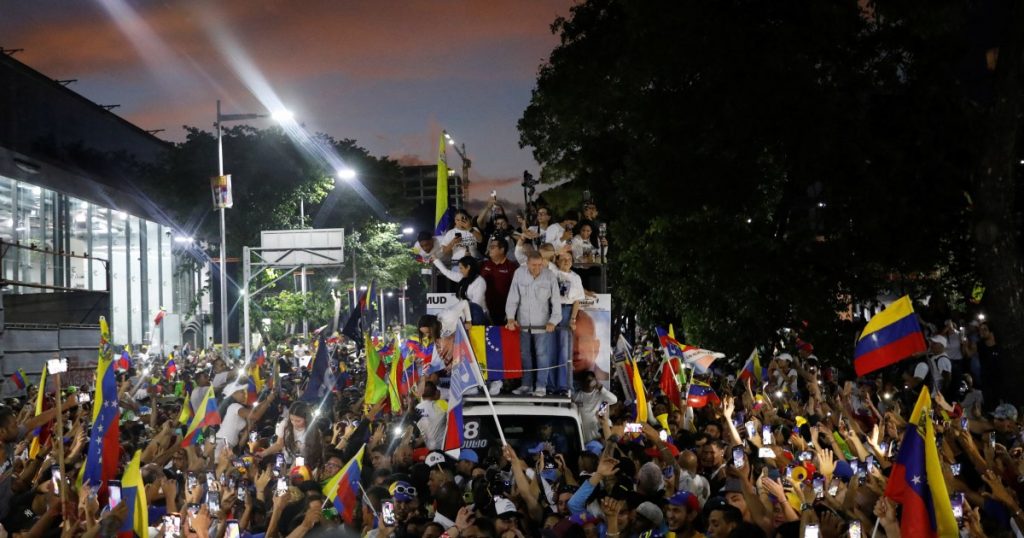Venezuela is preparing for a crucial election on July 28, with current President Nicolas Maduro facing stiff competition from opposition candidate Edmundo Gonzalez Urrutia. Polls show Maduro trailing Gonzalez by up to 40 points, with citizens expressing weariness over the country’s economic crisis and political repression. There are concerns about whether Maduro will accept defeat gracefully, given his history of suppressing rivals by arrests and disqualifications from office.
Maduro’s popularity has suffered in recent years due to the economic crisis that hit Venezuela when oil prices, the country’s main export, plummeted. Hyperinflation and economic strain caused an exodus of people seeking better opportunities elsewhere. The US imposed sanctions on Venezuela in response to alleged human rights violations, exacerbating the economic situation. The minimum wage is insufficient to cover basic needs, leading to widespread desperation among the population.
More than 7.7 million Venezuelans have fled the country since 2014, with around 2,000 people leaving daily, underlining the severity of the economic situation. In the upcoming election, Maduro is running for a third term as the candidate for the United Socialist Party, while Gonzalez leads the opposition coalition seeking to oust Maduro. The opposition aims to improve relations with the West, lift sanctions, and attract investment to improve conditions in Venezuela.
The past election in 2018 was boycotted by much of the opposition, citing concerns about the fairness of the electoral system. Maduro won by a significant margin but faced criticism from international observers. This year’s election has already been marred by allegations of unfairness, with popular opposition figures barred from running and others facing detention on dubious charges. Faith in the legitimacy of Venezuelan elections has declined, with confidence dwindling among voters.
There are doubts about the fairness of the upcoming election, with concerns about potential electoral fraud or manipulation. If Maduro loses, there are fears that he may refuse to step down and cling to power through undemocratic means, which could lead to further instability in the country. Western countries, particularly the US, have criticized Venezuela’s government for its repressive actions and lack of democracy, but there are indications of a shift in US policy towards Venezuela with attempts to ease tensions and promote free and fair elections.
Despite calls from other countries in the region for Maduro to respect the will of the voters, there is uncertainty about how the election will unfold and what the outcome will mean for Venezuela and its people. The ongoing economic crisis, mass displacement of citizens, and political repression all contribute to a sense of urgency and concern surrounding the election. The results will undoubtedly have far-reaching implications for the future of Venezuela and its relationship with the international community.












